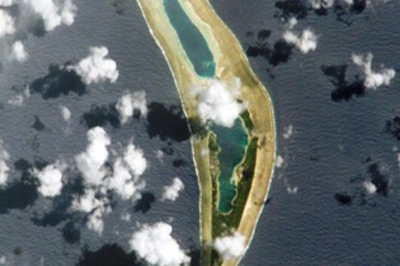The roughly 700 people who live in Nanumea in Tuvalu depend on coastal and marine fisheries resources for their daily dietary needs. These resources, and the community's health and livelihoods, are at risk due to water pollution, coastal erosion, and destructive fishing practices. They are also threatened by the effects of climate change, including coral bleaching, ocean acidification, and tropical storm surges.
To combat these threats, the Foundation of the People of the South Pacific International (FSPI), in cooperation with TANGO and with funding from Coral Reef Initiatives for the Pacific (CRISP), have integrated climate change adaptation and disaster risk reduction with locally managed marine areas (LMMAs) and the development of resilient coastal fisheries. Primary goals of the project include: ecosystem education, strengthening the island council governance capacity to care for the health of ecosystems through workshops and trainings, building compost toilets to reduce solid waste pollution in waterways, establishing LMMAs and closing them from fishing activities, placing gear and species restrictions in LMMAs, and restoring coral reefs and mangroves in degraded areas.
What makes it bright?
- Pursues an integrated community approach to the sustainable management of resources
- LMMA fishing restrictions help build resilient coastal fisheries
Region: Oceania
Country: Tuvalu
Focal Point: Semese Alefaio, Tuvalu Association of NGOs (TANGO)


